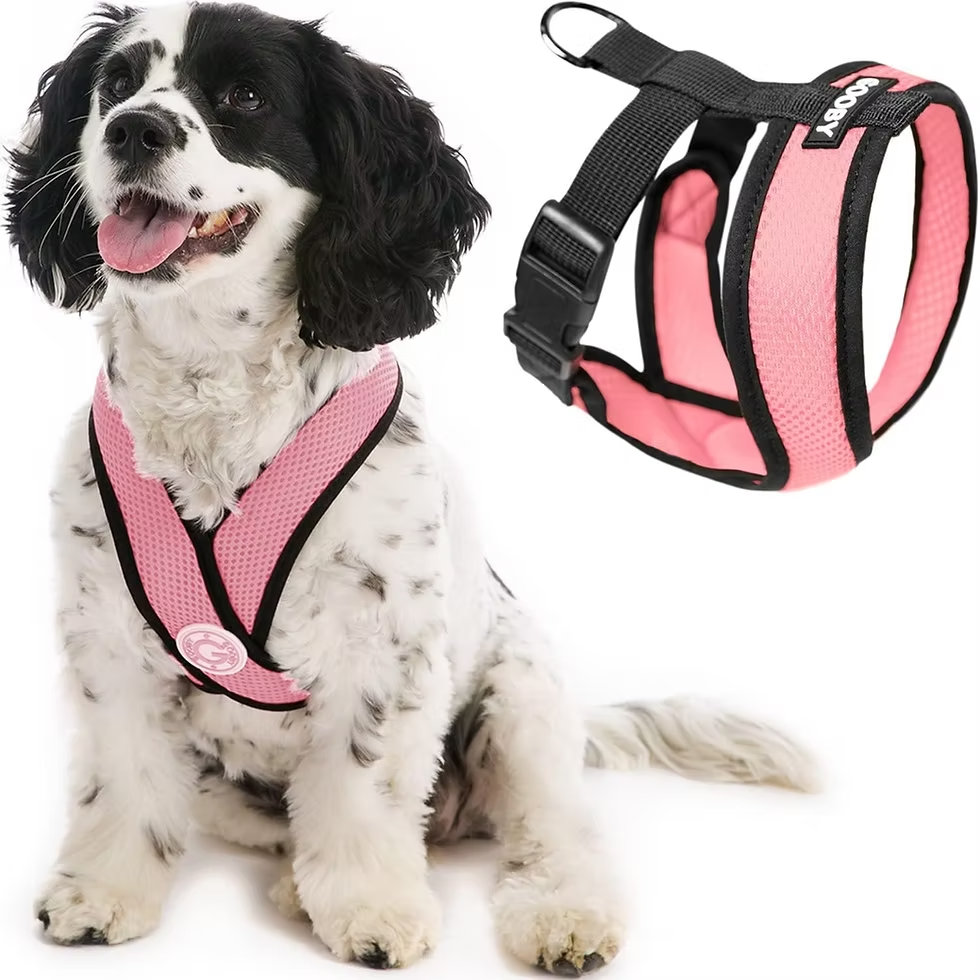Tracheal collapse is a serious yet common health issue in dogs that affects the trachea or “windpipe,” leading to coughing, difficulty breathing, and a reduced quality of life. While medical management and lifestyle changes play crucial roles in controlling the condition, one of the simplest and most effective tools to support pet health in these cases is switching to a dog harness.
If your dog has been diagnosed with tracheal collapse, or if you’re concerned about their respiratory health, understanding the importance of using a harness instead of a collar can make a significant difference in their comfort and well-being.
What Is Tracheal Collapse?
Tracheal collapse is a progressive condition where the rings of cartilage that support a dog’s trachea weaken or flatten, causing the windpipe to narrow and, in severe cases, collapse altogether. This can lead to:
- Persistent coughing (often described as a “goose honk”)
- Labored breathing
- Gagging or retching, especially when excited or after eating
- Exercise intolerance
This condition is most commonly seen in toy and small breeds such as Pomeranians, Chihuahuas, Pugs, and Yorkshire Terriers, although any dog can be affected.
The Role of a Dog Harness in Tracheal Collapse Management
When it comes to managing tracheal collapse, protecting the trachea from any external pressure is essential. Traditional collars, especially when used with a leash, can put direct pressure on the neck and worsen the condition. That’s where a dog harness becomes a critical part of maintaining your dog’s pet health.
Here’s why using a harness is not just beneficial—but essential—for dogs with tracheal issues.
1. Eliminates Pressure on the Neck
The single most important reason to switch to a dog harness is that it eliminates pressure from the neck and trachea.
When a dog wearing a collar pulls on the leash, the force is concentrated on the throat. For a dog with tracheal collapse, even slight pressure can trigger coughing fits or cause further damage to the already weakened tracheal rings. A properly fitted harness distributes that pressure across the chest and shoulders, completely bypassing the neck area.
This simple switch can dramatically reduce coughing episodes and improve your dog’s comfort during walks.
2. Supports Overall Pet Health
Pet health isn’t just about treating disease—it’s about preventing further harm and promoting comfort. A dog harness supports your dog’s overall well-being by reducing physical stress and making everyday activities like walking less taxing.
Dogs with tracheal collapse already struggle with breathing. Using a collar only exacerbates the problem. A harness allows them to breathe more freely, reducing the risk of respiratory distress during physical activity or excitement.
3. Reduces Anxiety During Walks
Dogs with tracheal collapse may begin to associate walking or leash time with discomfort, especially if they’ve had bad experiences with collars. This can lead to anxiety and resistance to going outside—a problem since regular, gentle exercise is beneficial for weight control and mental stimulation.
Switching to a harness makes walking a more pleasant experience. It removes the pain trigger, helping your dog feel more relaxed and secure, which in turn supports both emotional and physical health.
4. Prevents Emergency Situations
In severe cases of tracheal collapse, a sudden tug on a collar can trigger a coughing fit or even cause your dog to collapse from lack of oxygen. A dog harness helps prevent such emergencies by ensuring there’s no dangerous pressure on the airway.
In fact, many veterinarians and pet specialists recommend harnesses as a standard precaution—not only for dogs already diagnosed with the condition but also for small breeds predisposed to it.
5. Ideal for Post-Diagnosis Care
Once a vet has diagnosed your dog with tracheal collapse, managing the condition becomes a daily priority. Medication, lifestyle changes, weight control, and environmental adjustments all play a role—but one of the first and easiest changes is switching to a harness.
It’s a non-invasive, low-cost intervention that yields immediate benefits. Many pet owners report a noticeable improvement in their dog’s breathing and activity level shortly after making the switch.
Choosing the Right Dog Harness for Tracheal Collapse
Not all harnesses are created equal. If your dog suffers from tracheal issues, it’s important to choose a harness designed for comfort, safety, and pressure distribution.
Here are key features to look for:
1. Soft, Padded Material
Choose a harness made from breathable, padded fabric that won’t rub or chafe the skin. Look for materials like mesh, neoprene, or soft cotton.
2. No-Pull Design
A front-clip or dual-clip harness helps discourage pulling gently and naturally, without putting any stress on the neck.
3. Wide Chest Strap
A wide chest area helps distribute force evenly, preventing any single point from bearing too much pressure.
4. Adjustable Fit
Dogs with tracheal collapse may need custom-fit options depending on their size and condition. An adjustable harness ensures a snug but not tight fit.
5. Easy On/Off
Look for harnesses that are easy to put on and take off—especially important for older dogs or those with additional health issues like arthritis.
Additional Tips for Managing Tracheal Collapse
While a dog harness is a crucial tool, here are a few more tips for supporting your dog’s pet health:
- Avoid heat and humidity: Hot weather can worsen breathing difficulties.
- Control your dog’s weight: Extra weight puts more strain on the respiratory system.
- Minimize excitement and stress: Both can trigger coughing episodes.
- Use a humidifier: This can help soothe your dog’s airways.
- Avoid smoke, dust, and strong perfumes: These irritants can worsen symptoms.
Always follow your veterinarian’s treatment plan and report any changes in your dog’s behavior or breathing.
Final Thoughts
When dealing with tracheal collapse, every small change you make in your dog’s lifestyle has the potential to greatly improve their comfort and quality of life. One of the most impactful—and often overlooked—changes is the switch from a collar to a dog harness.
Harnesses are not just accessories—they’re essential tools for protecting your dog’s pet health, especially if they suffer from respiratory issues. By reducing pressure on the neck, preventing injury, and making walks more comfortable, a harness becomes a lifeline for dogs with tracheal collapse.
If your dog is struggling with coughing or has been diagnosed with this condition, consult your vet and invest in a high-quality harness. It’s a small step that can lead to big relief—for both you and your four-legged friend.


